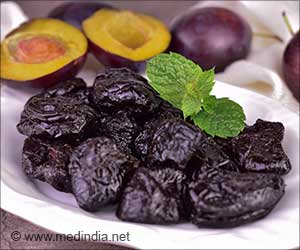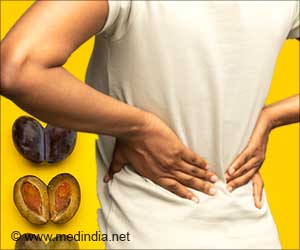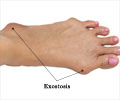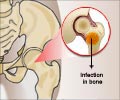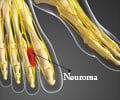Can eating prunes improve bone health in postmenopausal women? Yes, a study suggests that daily prune consumption helps maintain bone density and strength.
- Daily prune consumption slows age-related bone loss and lowers fracture risk in postmenopausal women
- Prunes contain bioactive components that may reduce inflammation and improve bone health
- A 12-month study showed that eating four to six prunes daily preserves bone density and strength
Prunes preserve cortical density and estimated strength of the tibia in a 12-month randomized controlled trial in postmenopausal women: The Prune Study
Go to source). "This is the first randomized controlled trial to look at three-dimensional bone outcomes concerning bone structure, geometry, and estimated strength," said Mary Jane De Souza, distinguished professor of kinesiology and physiology at Penn State. "Our study found that daily prune eating influenced parameters related to fracture risk. "That is clinically invaluable."
Prunes contain polyphenols that may help reduce inflammation and protect against bone loss, making them a natural alternative to support bone health. #bonehealth #prunes #osteoporosis #medindia’
Bone Degenaration And Osteoporosis
Bones are made up of dynamic tissues that are always undergoing remodeling. Specialized bone cells eliminate old bone and replace it with new bone. With age, the scales begin to tip, and the body degrades bone quicker than it can manufacture.Accelerated bone loss can cause osteoporosis, a disease in which bone density decreases and bone structure changes, leaving it weaker and more prone to fractures. According to the Centers for Disease Control and Prevention, more than 10 million Americans have the illness, which is more common in women than males and in older adults.
Bone Health in Postmenopausal Women
According to the study, postmenopausal women are particularly concerned about this. Estrogen, a hormone important for bone health, decreases at this stage of life, and reduced estrogen levels accelerate bone density loss. While there is medicine available to treat osteoporosis, the researchers found that many women who should be taking it are not.According to De Souza, prunes represent a possible option. They include bioactive components such as polyphenols, which may reduce the inflammatory processes that contribute to bone loss.
Prior research mostly utilized dual-energy X-ray absorptiometry (DXA) to assess 2D bone mass density and diagnose osteoporosis. However, DXA scans cannot distinguish between different types of bone tissue or evaluate bone structural features, which can be used to predict bone strength and quality, according to the researchers.
"When we look at bone mineral density, we want to know how much bone there is, as well as the quality of the bone. A three-dimensional image allows us to see bone structure, geometry, and microarchitecture. In other words, it tells us how healthy the bone is," De Souza explained.
Does Daily Prune Consumption Improve Bone Quality?
To see if daily prune eating affected bone quality, the researchers conducted a 12-month randomized controlled experiment with 235 postmenopausal women. Participants were divided into three groups: no prunes, 50 grams (four to six prunes per day), and 100 grams (ten to twelve prunes per day). Every six months, patients were evaluated using a peripheral quantitative computed tomography, or pQCT, scan, which uses cross-sectional imaging to determine 3D bone mass density, bone shape, and bone strength.Over a year, the researchers discovered that measurements of bone mass density and bone strength at the tibia, or shin bone, all declined in women in the control group. In contrast, individuals who ate at least four to six prunes per day retained bone density and strength, as well as bone structure, notably in the cortical bone. While women in both prune groups reported benefits, four to six prunes per day may be a more practical amount. Women in the 100-gram group dropped out of the trial at a higher rate because they became tired of eating so many prunes regularly.
"It's pretty exciting data for a 12-month study," De Souza explained. "We were able to maintain and preserve bone at the weight-bearing, cortical bone of the tibia and the maintenance of cortical bone and bone strength is key to avoiding fracture."
According to De Souza, prune eating may lessen the incidence of osteoporosis, but additional research is needed.
The research team's paper builds on a series of investigations looking into the association between prunes and bone health. In a previous study with the same group of women, the researchers found that eating prunes regularly for a year helped to retain total hip bone mass density. They've also looked into potential reasons for prunes' bone-protecting properties, such as how prunes affect microorganisms in the gut microbiome. De Souza stated that they hope to expand on these findings in future investigations.
Reference:
- Prunes preserve cortical density and estimated strength of the tibia in a 12-month randomized controlled trial in postmenopausal women: The Prune Study - (https://link.springer.com/article/10.1007/s00198-024-07031-6)
Source-Medindia



